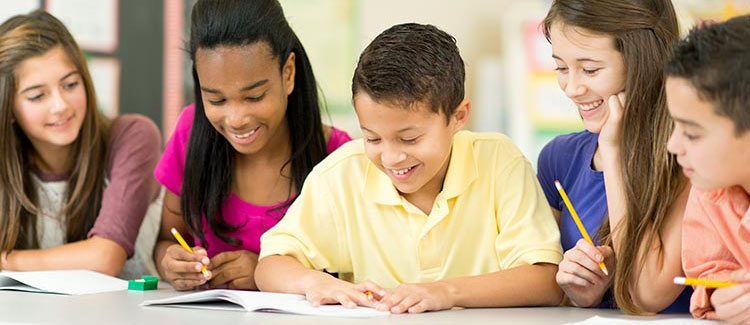Did your child learn the skills they need to be ready for eighth grade? Here are some of the most important academic skills that kids acquire in seventh grade. If your child hasn’t mastered some of them, don’t worry. The important thing is that your child makes progress toward mastery. Choose a few areas to focus on this summer, but keep things low-key both for you and for your child. It’s more important that at-home learning be an experience that encourages your child to enjoy tackling challenges.
By the end of 7th grade, kids should be able to:
- Evaluate a piece of nonfiction writing and determine whether there is sufficient evidence and logic to support the main idea.
- Identify themes and central ideas in a work of fiction.
- Understand and use academic vocabulary words (see word lists for 6th grade, 7th grade, and 8th grade).
- Proficiently read and understand grade-level novels, short stories, poetry, drama, and nonfiction.
- Understand that writing involves several steps: planning, revising, giving and receiving feedback respectfully, editing, rewriting and, sometimes, trying a new approach.
- Be able to identify evidence and make inferences from the evidence presented. (Read more about finding evidence and drawing inferences.)
- Understand the difference between phrases, dependent clauses, and independent clauses and use them correctly in writing.
- Write informative and explanatory papers on science and social studies topics that include academic vocabulary words, concrete details gleaned from research, and reference to cause-and-effect relationships.
- Express their researched, fact-based opinions in argument papers, in which they also acknowledge — and use facts to argue against — opposing viewpoints.
- Give oral presentations of their research and writing in which they present their main ideas to their classmates aloud, using formal language, clear pronunciation, and at a volume loud enough for everyone in the class to hear.
- Solve multi-step math problems that involve negative numbers, fractions, decimals, percents, and rate.
- Use the four operations (+, -, x, ÷) on decimals, fractions, and percentages in a variety of different types of problems.
- Solve algebraic equations and inequalities with at least one variable (unknown number) as a prelude to algebra.
- Fluidly convert decimals to fractions (and vice versa) and place both on a number line.
- Know the formulas for the area and circumference of a circle.
- Understand the basics of probability, including the idea of random sampling and how to use that data to produce a “representative sample.”
Read more about your seventh grader and reading, writing, and math under the Common Core Standards.






